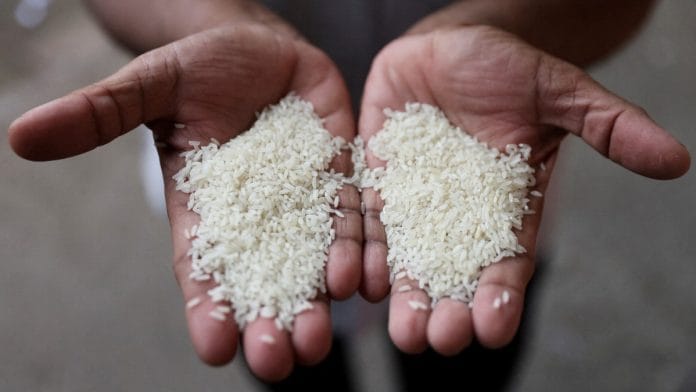New Delhi: India has allowed traders to ship out their non-basmati white rice cargoes sitting at ports due to a sudden ban on exports of the category, a government order said late on Tuesday.
On July 20, India surprised buyers by banning exports of widely consumed non-basmati white rice to control rising domestic prices. The move followed a ban on broken rice exports last year.
The export ban trapped thousands of tonnes of non-basmati white rice at ports, leaving traders facing losses.
The Directorate General of Foreign Trade (DGFT), a unit of the trade ministry, in its latest order said it would allow shipments of trapped cargoes provided traders paid the export duty by July 20, when the ban was imposed.
Before the July ban on non-basmati white rice exports, overseas shipments of the grade would attract a 20% tax.
After the DGFT order, around 150,000 tonnes of non-basmati white rice cargoes would be shipped out of various ports, said Prem Garg, president of the Indian Rice Exporters Federation.
“Three ships were standing still at the Kandla port and a lot of containers were lying at different ports, causing a lot of problems for the rice industry,” he said.
India, which accounts for 40% of world rice exports, sells the staple to more than 150 countries, including a few poor and vulnerable countries in Africa and Asia.
New Delhi exported a record 22.2 million tons of rice in 2022.
After banning non-basmati white rice exports, India on Friday imposed a 20% tax on parboiled rice shipments and introduced a floor price for overseas sales of basmati rice, as part of efforts to keep a lid on local prices.
India’s rice export curbs have put upward pressure on global rice prices.
“The permission to allow the cargoes stuck at ports will not only help Indian suppliers, it will also help consumers in some of the most needy countries,” Garg said.
Most of the trapped cargoes would go to East African and West African countries, he said.
(Reporting by Mayank Bhardwaj; Editing by Josie Kao)
Disclaimer: This report is auto generated from the Reuters news service. ThePrint holds no responsibilty for its content.
Also read: Pakistan stares at another crisis as sugar prices rise to Rs 185 per kg






